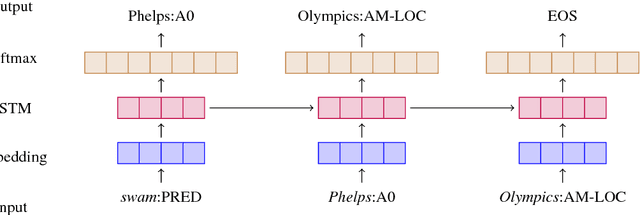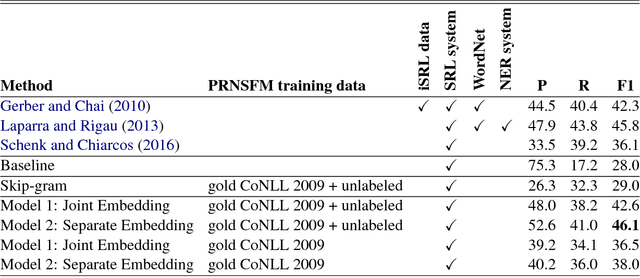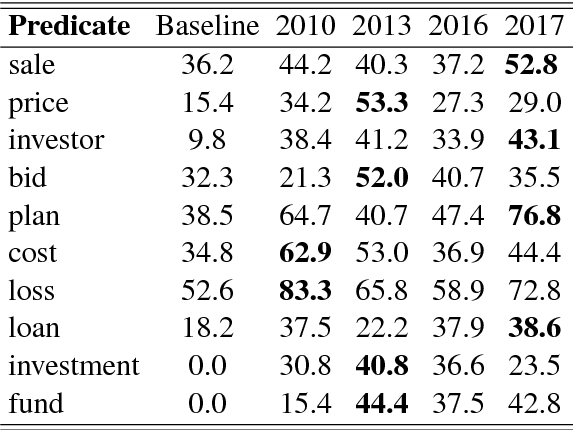Improving Implicit Semantic Role Labeling by Predicting Semantic Frame Arguments
Paper and Code
Oct 05, 2017



Implicit semantic role labeling (iSRL) is the task of predicting the semantic roles of a predicate that do not appear as explicit arguments, but rather regard common sense knowledge or are mentioned earlier in the discourse. We introduce an approach to iSRL based on a predictive recurrent neural semantic frame model (PRNSFM) that uses a large unannotated corpus to learn the probability of a sequence of semantic arguments given a predicate. We leverage the sequence probabilities predicted by the PRNSFM to estimate selectional preferences for predicates and their arguments. On the NomBank iSRL test set, our approach improves state-of-the-art performance on implicit semantic role labeling with less reliance than prior work on manually constructed language resources.
 Add to Chrome
Add to Chrome Add to Firefox
Add to Firefox Add to Edge
Add to Edge